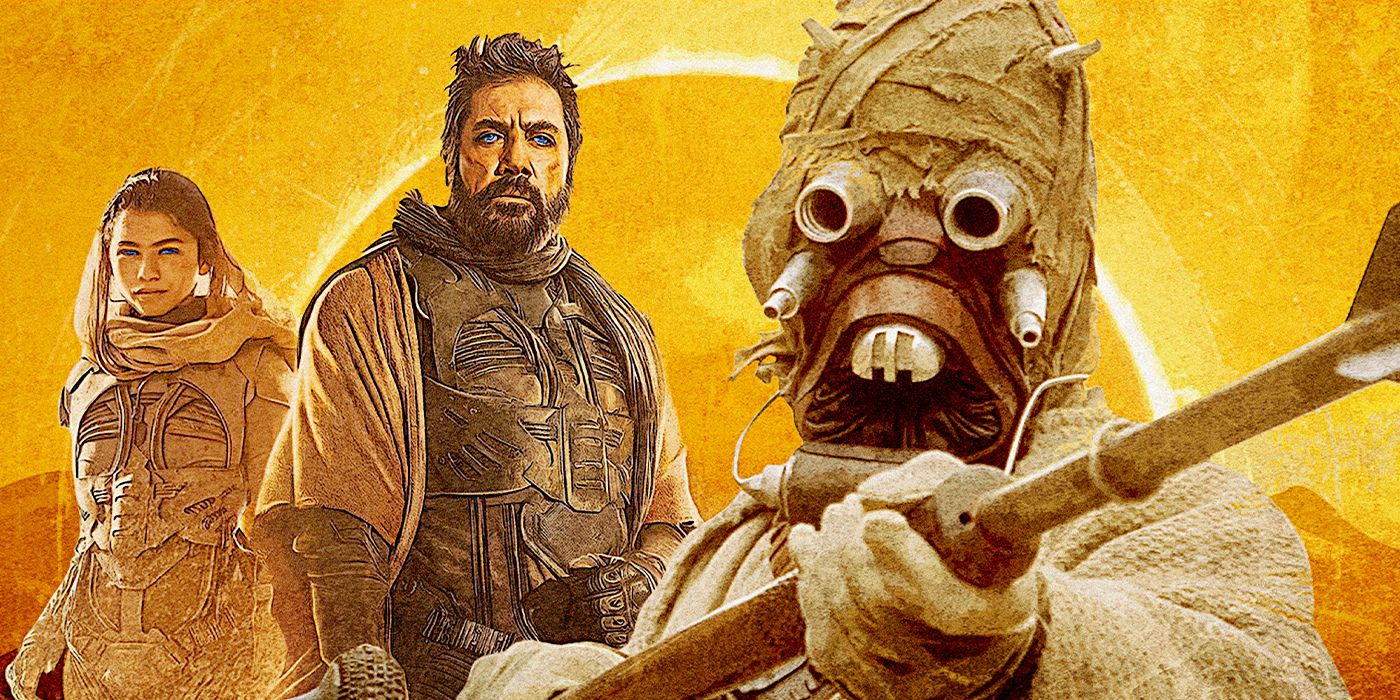Summary
- George Lucas drew inspiration from Dune for Star Wars, but failed to accurately portray indigenous people, unlike Frank Herbert.
- Tusken Raiders in Star Wars were depicted through harmful stereotypes but recent series like The Mandalorian aim to correct this.
- The Book of Boba Fett showcases a shift in representation by having a Maori actor lead the narrative on understanding the Tuskens.
When Frank Herbert began composing and orienting the broad strokes of what would later become the mythological world-building of his magnum opus, Dune, he was influenced by cultural phenomenons that he admired. An adherent of Zen Buddhism and fascinated by the practices of Sunni Islam, he infused the indigenous people of the planet Arrakis with an amalgam of those faith traditions and peppered them with his own imaginative accents. The result was the Fremen, a native people who had culled a life for themselves out of the harsh desert landscape and fought the exploitative mercantile colonizers who invaded their world with no respect for them or their beliefs.
George Lucas had many muses when building the foundational pieces for his own iconic work and Dune was among them. He was intoxicated by the Fremen but erred strongly along the paths of exoticism while ignoring the bones of what made them truly captivating. In designing a set of indigenous people who were also eking out an existence on a desert world he ignored the beauty and emphasized their savagery, creating a one-dimensional vessel to store a viewer's animus with none of the humanizing elements that would make them relatable or understandable. Each man has spent some time vilified in the public discourse over their respective interpretations of native lifestyles set against their sweeping epics, but Lucas was more deserving of the scorn, and it is only in the recent release of The Book of Boba Fett that some of his missteps were given a long overdue retrofit.
Updated March 26, 2024, by Joshua M. Patton: Star Wars was heavily influenced by Dune, but this was not the only influence on George Lucas when crafting his epic space saga. He drew from many inspirations, including the Republic serials and Flash Gordon shorts he watched in cinemas as a child. Of course, those stories featured heavily problematic stories and themes, particularly where the depiction of indigenous people was concerned. Thus, the Tusken Raiders, derisively called "sand people" by the characters, weren't just inspired by the Fremen but those as well. It was only recently that Star Wars began to treat the Tuskens as more than faceless antagonists the heroes and villains alike cut down with little regard. In literature or film, treatment of an indigenous culture in this way is faltly wrong, and it's disappoining when good stories fall into this trap. This article has been updated to comport to CBR's current formatting standards.
Are Star Wars' Tusken Raiders A Cheap Knock-Off Of Dune's Fremen?
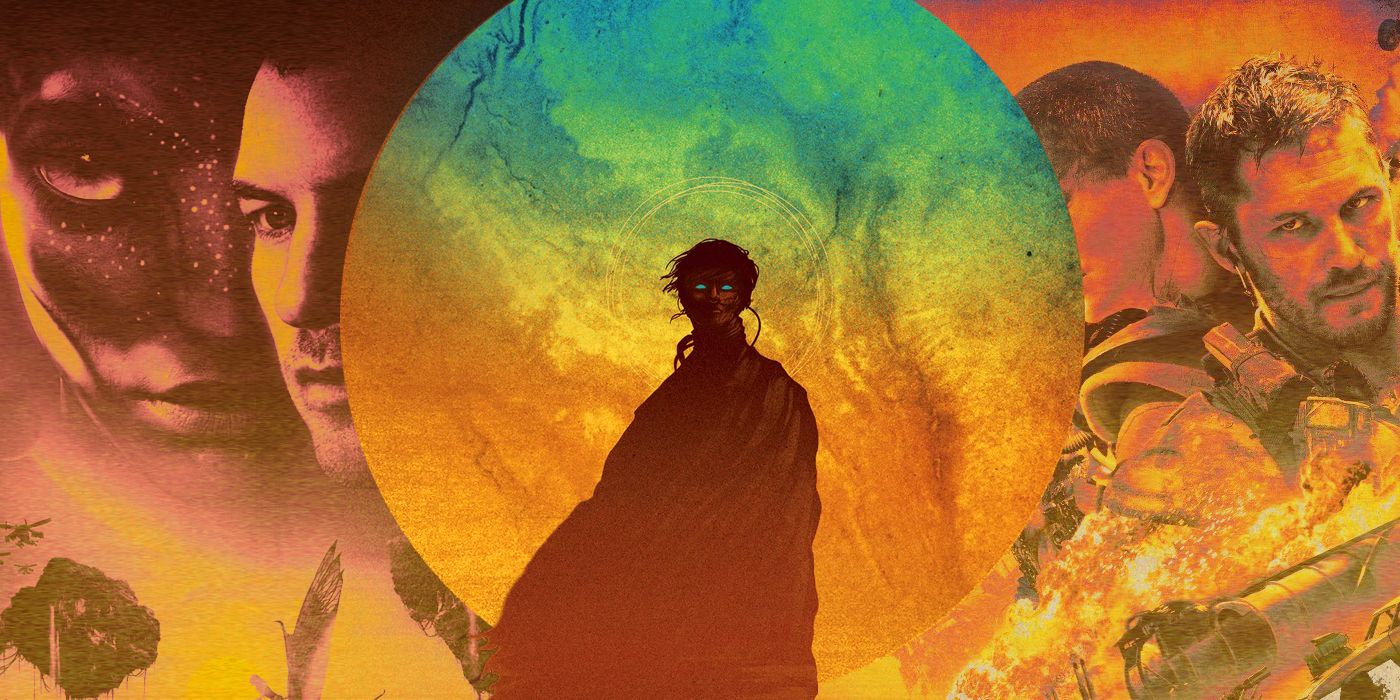
5 Fantasy & Sci-Fi Franchises Heavily Influenced By Dune
Borrowing everything from its creature design to its worldview, these five popular franchises might never have existed without Dune's examples.Westerns of America's cinematic golden age were dominated by white cowboys toting bright pistols and extolling justice on the frontier against the savages that plagued the good folk of the wide plains. Native Americans, colloquially misidentified as Indians, were the barbarous horde that yelped and whooped as a substitute for language and burned and pillaged as a stand-in for commerce. When a white settler took the time to understand these people in the most patronizing of ways, they were lauded on screen as saintly and deserving of the audience's empathy, and when the Natives betrayed them, the vitriol felt earned.
Star Wars employs this formula for the Tuskens and for the same reasons. The largest rationale for Luke's fear of crossing the Dune Sea to see old Ben is the presence of the "sand people." Covered from head to toe, they are a masked grunting mob, denied even a rudimentary degree of empathy due to their wanton violence and the complete lack of facial language that might convey emotion or pain. They are cowardly and superstitious, and their actions make little sense, since they often steal things they do not use and appear too primitive to engage in much barter.
During the prequels, they are maligned further. Anakin Skywalker's mother, a slave, married a man who purchased her freedom. She was later abducted by the Tuskens, triggering premonitions in Anakin that would presage his downfall to the Dark Side. He arrived on Tatooine and hunted down those who had been responsible, giving audiences their first look at a Tusken dwelling where they kept pets, built homes, and raised children. After Anakin finds his mother clinging to life, she dies in his arms before he can rescue her. In a rage, he slaughters the entire encampment — the warriors, the women, and their children. When he confesses this to the woman he loves, she does not recoil from him but instead comforts him in his time of mourning.
Why Did No One Care That Anakin Skywalker Eradicated A Tusken Encampment?
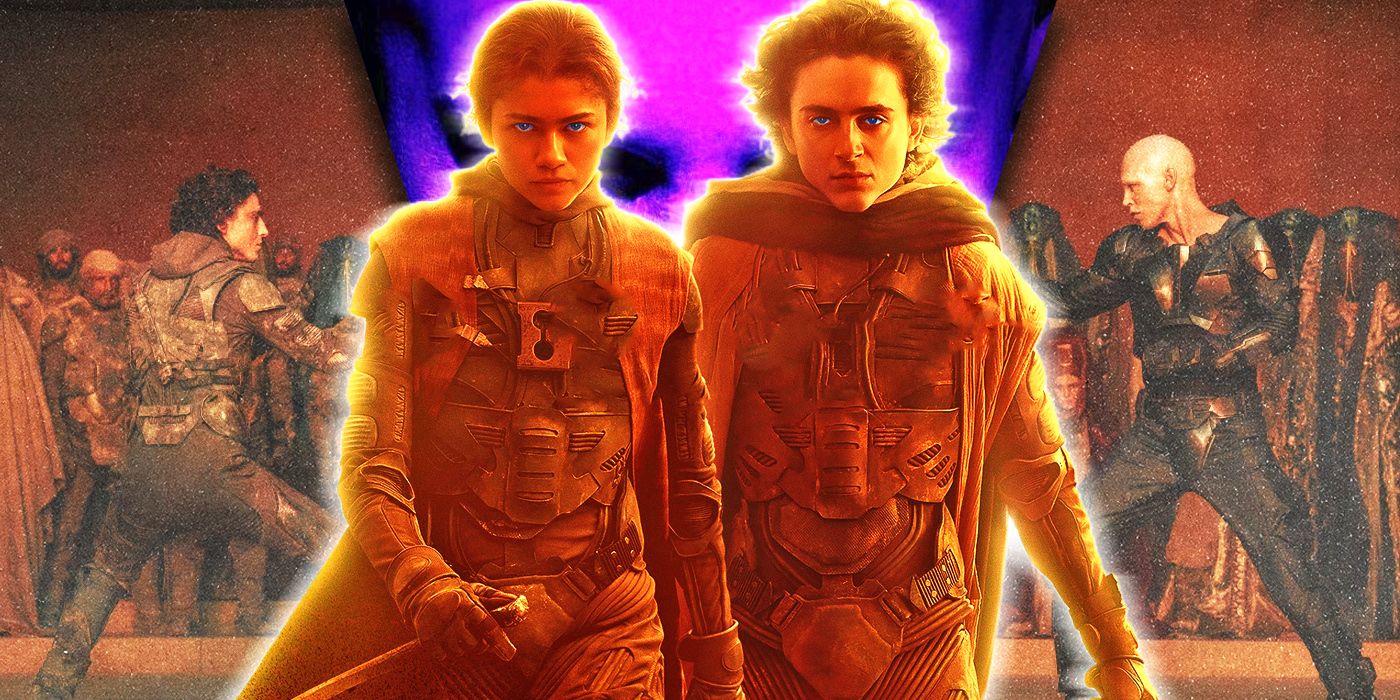
Dune 2 Becomes One of the Highest-Grossing IMAX Films Ever
Dune: Part Two continues its charge at the global box office, becoming one of the biggest money makers ever for IMAX.The only thing that is important in Star Wars about the Tuskens is that their lives are so worthless that it does not matter to a Senator of the Republic that a Jedi in good standing summarily executed an entire tribe. They are unworthy of any attention or deeper reflection, only as a vehicle for the blond-haired blue-eyed Chosen One to express his hatred. This approach, inadvertently, reinforces the harmful tropes of the past. That doesn't imply that the Tuskens should have been granted certain sympathies after what they had done, but there was no need to ascribe a worthy motivation or even a justification. They were simply Tuskens, so naturally, they operate beyond reason or rational thought. This is arguably more offensive than the "white savior" trope.
They are, almost shamefully, depicted as no more than bipedal animals that simply react without even the guise of intellect. These stereotypes are all too familiar to indigenous people, and the Native American community takes issue with this portrayal throughout their historical depictions in media. Attack of the Clones does nothing to follow up on Anakin's crimes on Tatooine. The only people he confesses them to, at least in the films, are Padmé Amidala and Chancellor Palpatine. The latter is a Dark Lord of the Sith, so he wouldn't be bothered by the senseless killing. Yet, what's surprising is that Padmé was able to forgive him for slaughtering people in cold blood. While this may have been a subtle indication of the corrupting nature of their romantic attachment, it also reads like the Tuskens simply don't matter to the one Senator who is supposed to care abuot everyone in the galaxy.
The Fremen suffered from similar prejudices and perceptions. The Bene Gesserit inserted primitive prophecies into the Arrakeen mythology to prepare the way for the Kwisatz Haderach, their genetic male messiah. This subverts their agency, making them the pawns of a more sophisticated culture that preys upon their naïveté from within their own sacred tenets. The Fremen then assert this fealty to their Mahdi and go about the business of galactic jihad, plundering the galaxy and murdering infidels who do not hold to their beliefs. Paul Atreides is a subversion of the problematic trope in literature and film of "the white savior." He can pierce the veil of the future and see this outcome, but still uses the Fremen to achieve his goals while doing his best to sublimate their vicious tendencies, absolving himself while reducing them to mere sharp instruments in the process. One could argue the very point of the Paul Atreides story in Dune is to highlight how wrong this pervasive narrative device can be.
How The Mandalorian & The Book Of Boba Fett Try To Fix Star Wars' Tusken Mistakes
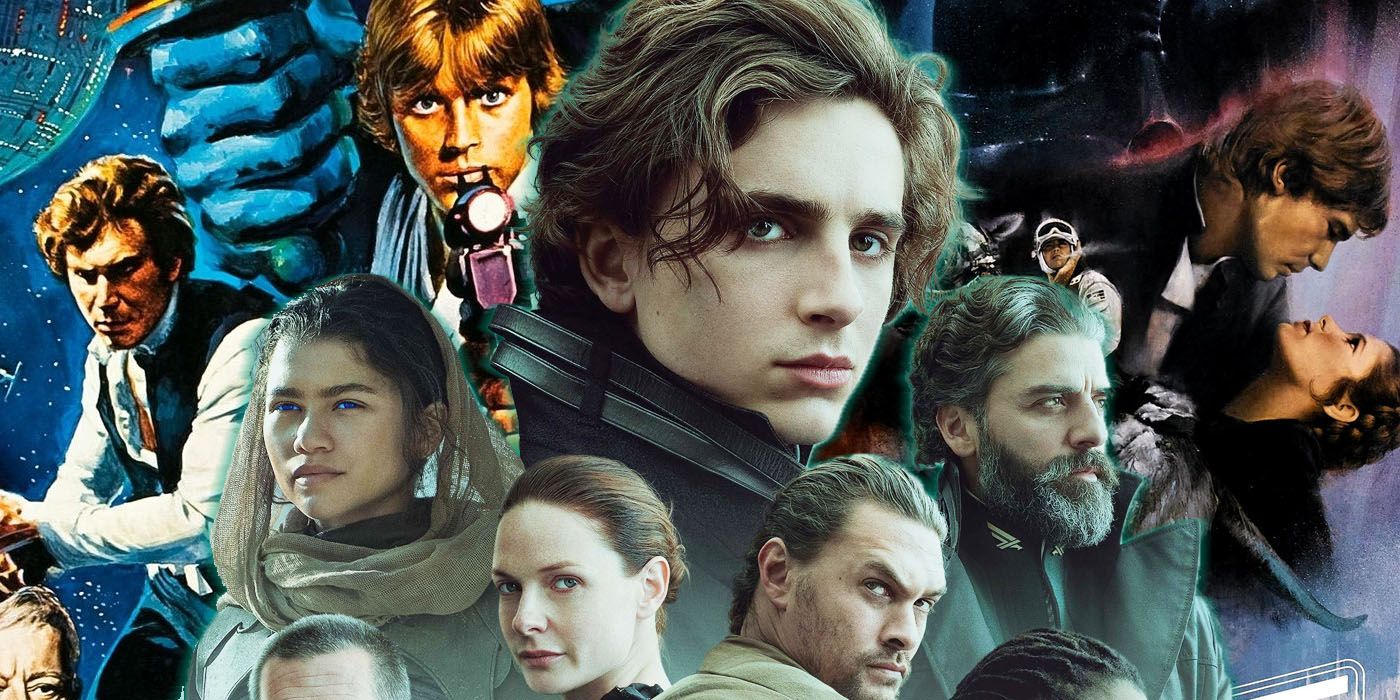
Dune's Influence on Star Wars Goes Beyond the Original Trilogy
There is no doubt that Frank Herbert's Dune was a huge inspiration for the original Star Wars, but did it also inspire its prequels?The return of the Tuskens in Seasons 1 and 2 of The Mandalorian takes small steps to shift viewer attitudes about this indigenous people away from the wrongheaded view as "savages" and depicts them as a people with their own culture. Din Djarin is able to communicate with the Tuskens, first to find his quarry in the Dune Sea and, later, to help them kill a massive Krayt Dragon. This is an act of cultural significance for them. Din Djarin does this to help the colony of humans and aliens living nearby in trade for Cobb Vanth's Mandalorian armor. Armor, it turns out, that belongs to another person who is close with the Tusken people: Boba Fett.
What the Book of Boba Fett accomplishes to its credit, is in transposing the white savior, who often shows up to bring the trappings of civilization to the infantilized natives, with a man of indigenous origins. Temuera Morrison is a Maori man, and so the gaze by which he sees the Tuskens is dynamically filtered before the audience is even given the opportunity to become exposed to their rituals, customs, and rites of passage. Boba Fett lives among the Sand People and becomes one of them, but his journey is not rooted in transplanting his otherness for the benefit of empathy. This does not undo the years of damage that has already been done, but it does offer a perspective that makes Anakin's actions, and the franchise's overall portrayal of the Tuskens, more damning and forces the audience to reconcile their manufactured disdain.
Even though their representation is handled more respectfully, the outcome is the same. Wholesale annihilation used to fuel the main character's goal for dynamic change. Star Wars has been the focus of considerable ire from nonwhite members of their fandom who desire a more balanced palette of contributing voices to the narrative that has kept so many spellbound for more than four decades. The Book of Boba Fett has clearly approached the issue with a deeper understanding of how powerful that representation, or lack thereof, can be and one can only hope that viewers challenge themselves to understand why these depictions matter to so many who may not be as accustomed to seeing themselves in all the galaxies far, far away.
Dune: Part Two is currently in theaters, and all the Star Wars films are streaming on Disney+.
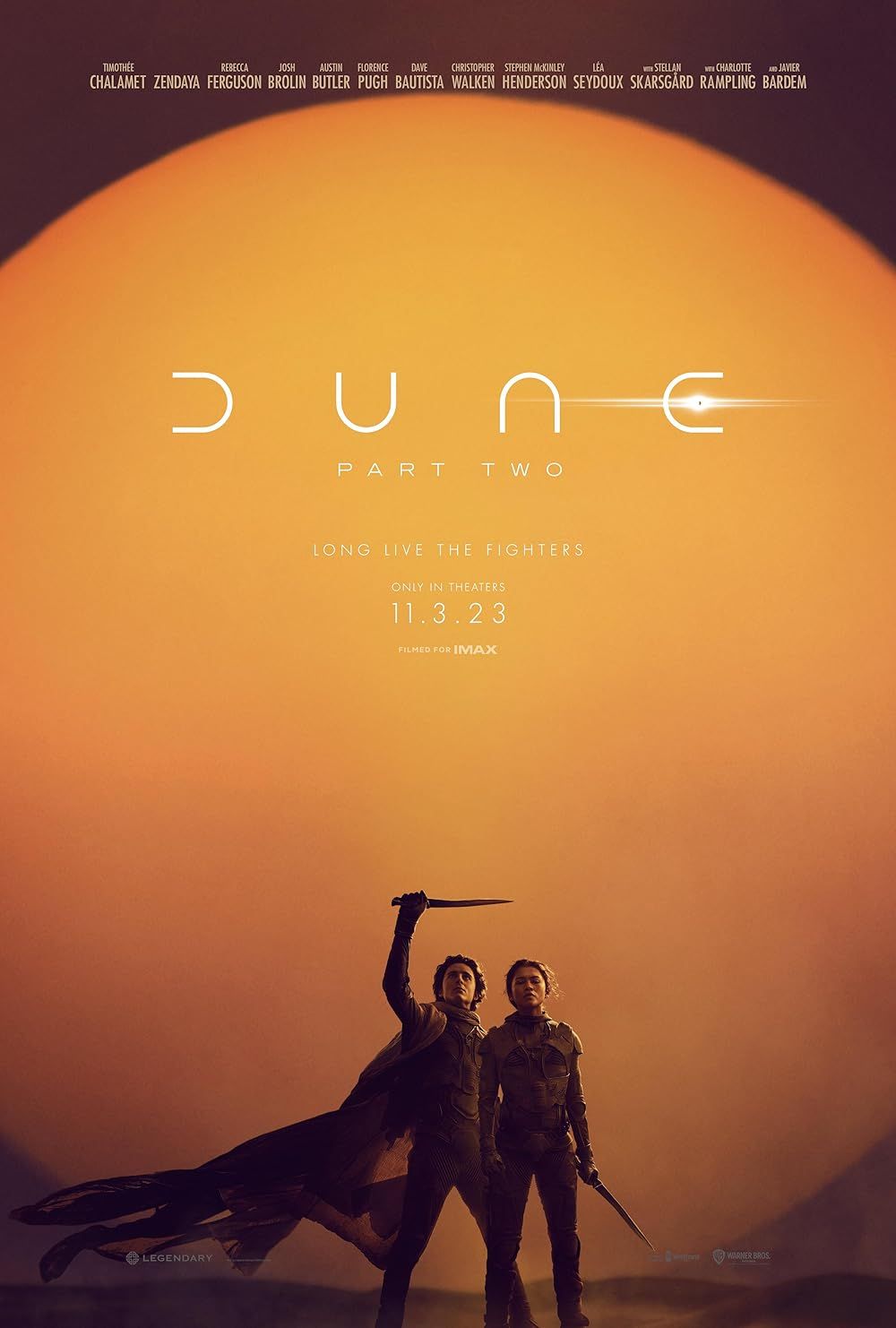
Dune: Part Two
Paul Atreides unites with Chani and the Fremen while seeking revenge against the conspirators who destroyed his family.
- Director
- Denis Villeneuve
- Release Date
- February 28, 2024
- Cast
- Timothee Chalamet , Zendaya , Florence Pugh , Austin Butler , Christopher Walken , Rebecca Ferguson
- Writers
- Denis Villeneuve , Jon Spaihts , Frank Herbert
- Runtime
- 2 hours 46 minutes
- Main Genre
- Sci-Fi
- Production Company
- Legendary Entertainment, Warner Bros. Entertainment, Villeneuve Films, Warner Bros.
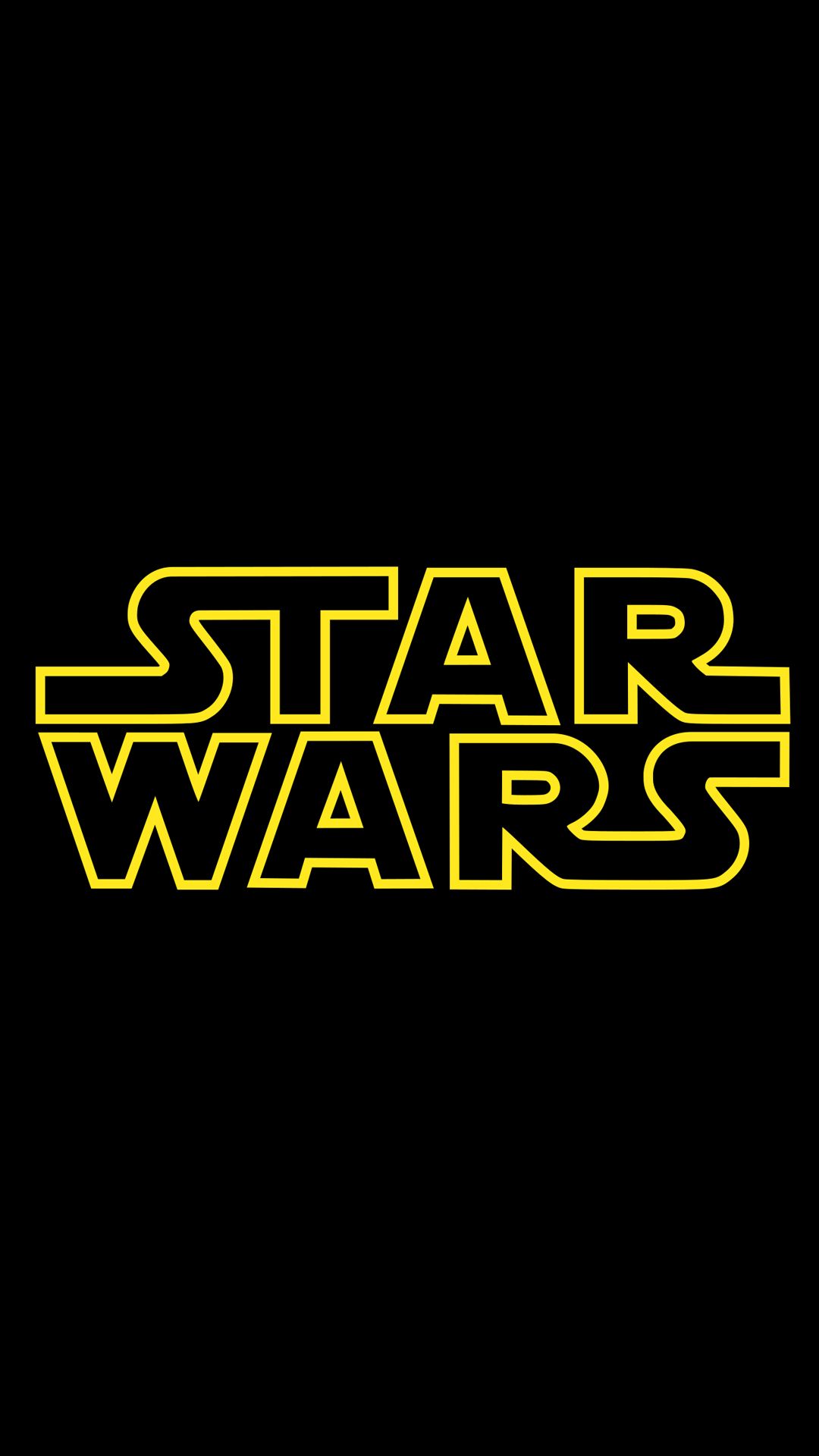
Star Wars
The original trilogy depicts the heroic development of Luke Skywalker as a Jedi and his fight against Palpatine's Galactic Empire alongside his sister, Leia. The prequels tell the tragic backstory of their father, Anakin, who is corrupted by Palpatine and becomes Darth Vader.
- Created by
- George Lucas
- First Film
- Star Wars: Episode IV - A New Hope
- Latest Film
- Star Wars: Episode XI - The Rise of Skywalker
- First TV Show
- Star Wars: The Mandalorian
- Latest TV Show
- Ahsoka
- Upcoming TV Shows
- Andor
- First Episode Air Date
- November 12, 2019
- Cast
- Mark Hamill , Carrie Fisher , Harrison Ford , Hayden Christensen , Ewan McGregor , Natalie Portman , Ian McDiarmid , Daisy Ridley , Adam Driver , Rosario Dawson , Pedro Pascal
- Spin-offs (Movies)
- Rogue One , Solo: A Star Wars Story
- TV Show(s)
- Star Wars: The Clone Wars , The Mandalorian , Ahsoka , Andor , Obi-Wan Kenobi , The Book of Boba Fett , Star Wars: The Bad Batch
- Character(s)
- Luke Skywalker , Han Solo , Princess Leia Organa , Din Djarin , Yoda , Grogu , Darth Vader , Emperor Palpatine , Rey Skywalker
- Genre
- Science Fiction , Fantasy , Drama
- Where to Stream
- Disney+
- Comic
- Star Wars: Revelations

